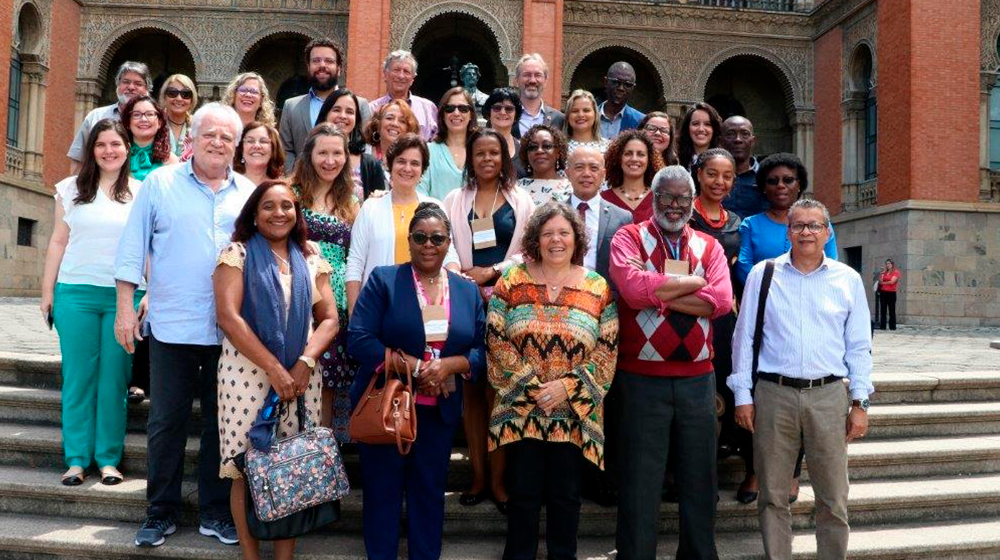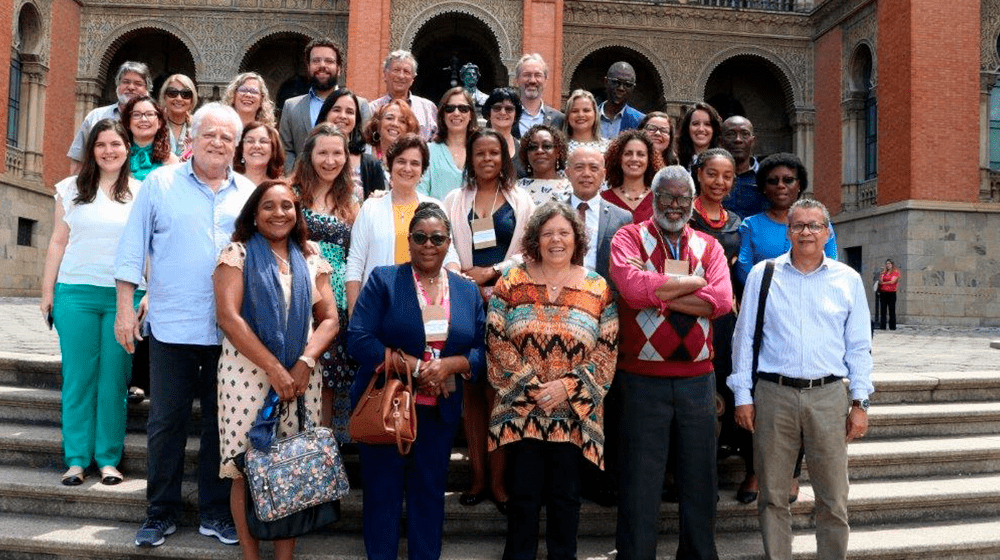Angola outlines a plan to reduce maternity and child death with the support of Brazilian Organizations

Maternal and child mortality is a concern and the Angolan Ministry of Health (MINSA) is looking for partnerships to help solve this public health concern. On June 4th, national authorities met with representatives of Brazilian Organizations and the United Nations Population Fund (UNFPA) to outline a plan of cooperation to help reduce maternally, child and neonatal deaths in the country.
In Angola, around 50% of births take place outside health institutions, placing the health of mothers and newborns at risk. Between 1990 and 2014, measures within the scope of the International Conference on Population and Development (ICPD) and the Accelerated Campaign to Reduce Maternal Mortality (CARMMA-2010), it was possible to reduce maternal mortality from 1400 to 460 deaths of mothers per 100,000 born alive. Advances are evident but still did not achieve the goals of the National Health Development Plan (2012 – 2025). MINSA now wants to reduce current maternal and infant mortality rates by at least 50% and increase institutional deliveries attended by personnel by 80%.
To recover from current indicators, the Angolan authorities are seeking support from institutions dedicated to the issue. This time, the answer came from Brazil. In early June, MINSA representatives met virtually with members of the Brazilian organizations Fundação Oswaldo Cruz (Fiocruz) and Fernandes Figueira National Institute for Women, Children and Adolescents (IFF/Fiocruz), to lay the foundations for a technical cooperation project. “This mission aims to advance the negotiation of the project that we have been designing with Angola, and which arises under the demand for a plan to reduce maternal deaths, which also means reducing infant and neonatal deaths”, explained Guilherme Nogueira, project analyst at the Brazilian Cooperation Agency (ABC), the body that coordinated the virtual meeting.
The meeting was also attended by the UNFPA offices in Brazil and Angola and the Brazilian Embassy in Luanda, agreed that, during the development of the project in Angola, UNFPA is to provide the necessary technical support in terms of reproductive health and it will facilitate dialogue and processes between the parties involved.
On the Angolan side, optimism is high. For the representative of the National Health Directorate of MINSA, Adelaide de Carvalho, this initiative is essential. “We have the opportunity to share experiences and knowledge among everyone. Today, we have reached an important stage in the preparation of this document, by validating an extremely important logical framework, which will also help us to see the unfinished points. We feel very comfortable with this and we will continue our journey until we reach what we set out to do”.
These ambitious goals make this project something “extraordinary”, considers, for his part, the Counselor of the Brazilian Embassy in Angola, Durval Carvalho de Barros. “The program involves technical training and humanitarian issues, in addition to overcoming real problems that affect public health management in Angola, as well as the country's economy and social reality”, he summarizes.
The preparation of this plan takes place within the scope of the partnership established between UNFPA and ABC. The Brazil-UNFPA Partnership Program for the Promotion of South-South Cooperation has accumulated nearly 20 years of experience and works on topics such as conducting demographic censuses, economic empowerment of women, preventing violence against women and girls and reducing maternal mortality.
On the other hand, in July 2019, UNFPA and Fiocruz signed in New York a cooperation agreement that enables a global partnership for the establishment of the ICPD Reference Center on Sexual and Reproductive Health, which includes the offer of several courses for health professionals from countries where UNFPA operates, especially Portuguese-speaking African countries, such as Angola.


